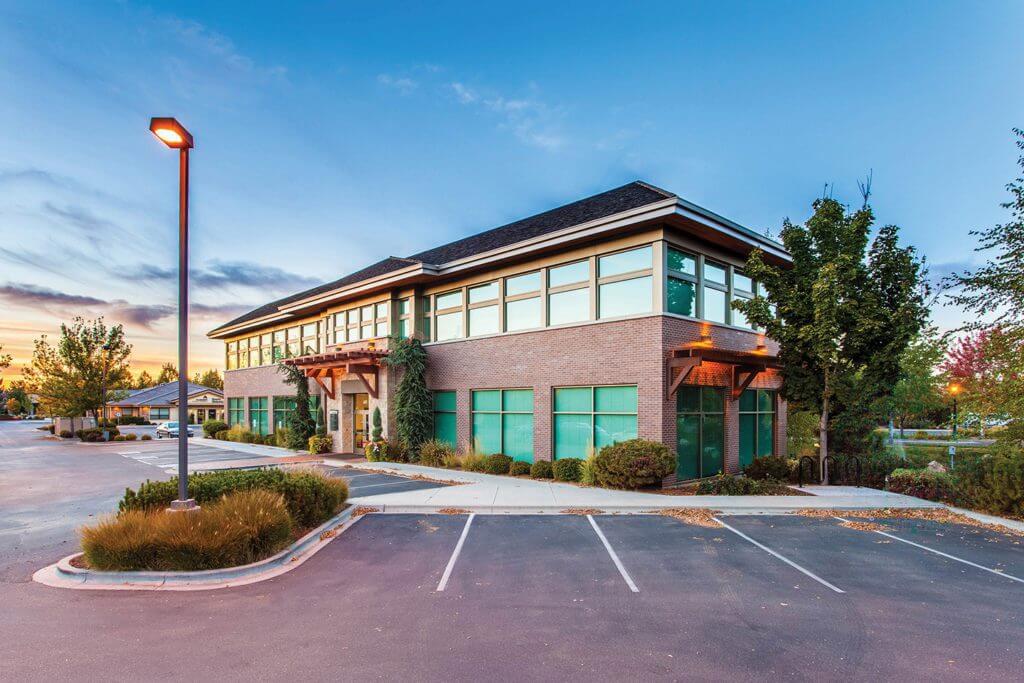

Whether you’re ready to expand your current business operations, move locations or simply renovate the building you already occupy, finding the correct financing is essential. As a small business owner, you know how important it is to be financially smart, especially when it comes to debt. That’s why commercial real estate loans are the best way to fund the growth of your small business.
Some small business owners feel like they are in over their heads when they start the search for the right commercial real estate loans. If you want to understand what you’re getting into before you walk into the bank, here is a guide to educate yourself ahead of time.
As the name suggests, commercial real estate loans are used for businesses and organizations. The location that your business occupies is considered commercial real estate—if it’s not your basement. These loans are what you would use to purchase office space, build a new commercial building or remodel an existing one. Most of the time, small businesses don’t have cash on hand to pay for real estate without financing, especially since the price tags on commercial properties can be extremely high.
Similar to a mortgage loans on a residential property, a commercial real estate loan is secured using liens on the commercial property. The liens serve as a guarantee to your creditor that you will repay the debt. If you don’t, the creditor can then seize the leveraged property.
In addition to liens on your property, a commercial real estate loan often requires a down payment. The amount you’ll pay up front depends on your creditor, but generally most require 20 to 30% of the total price of the property.
Typically, a loan comes with an interest rate, but commercial real estate loans tend to have rates much higher than other types, such as residential mortgages. The creditor will determine your interest rate based on a variety of factors, including the type of business, your business’ credit and your business’ financial health. Keep in mind that new businesses often have higher interest rates than established businesses, since they are riskier for creditors.
Another factor that can determine your interest rate is your loan to value ratios (LTV) . This is the amount of the loan compared to the value of the property. For example, if you have a small down payment and the loan is covering more of the total price of the property, your LTV ratio will be high and you’ll have a higher interest rate. If you can afford a bigger down payment, your LTV ratio will go down and you’ll receive a lower interest rate, which translates into a smaller repayment amount.

Photo by Binyamin Mellish from Pexels
Loans of any type require that you repay the full amount, plus interest, over a designated period of time. Most residential real estate mortgages have 30-year terms while commercial real estate loans often have shorter repayment terms. The two most common types of terms for commercial real estate loans are intermediate loan term, which are three years or less, and long-term loans, which are for anywhere from five to 20+ years.
There are also two types of loans: amortized loans or balloon loans. Amortized are the most familiar and are repaid on a schedule in fixed installments with interest, until the full amount is paid back. With a balloon loan, you pay fixed installments until the end of the term, and one large sum is then due to cover the remaining principal.
If you won’t likely have enough end-of-term cash on hand to make the lump-sum payment, you should avoid a balloon loan. However, you may be able to refinance sometime mid-term if a balloon loan is your only option to start.
A small portion of your repayment installments will be fees associated with commercial real estate loans. Some fees are applied to each monthly payment, while some lenders apply the fees on an annual basis. These fees cover items such as your loan application costs, loan origination, real estate appraisals and surveying costs.
In order to repay a loan before a full or partial term, there may be an early repayment fee. Lenders want to get the most out of their loans and an early payoff means they lose some of their gains in interest, which is why they’ll likely charge you a penalty.
Finding the right loan for your business requires the help of someone with experience. If you’re ready to purchase commercial real estate, let Chris Falk guide you through the process from beginning to end.